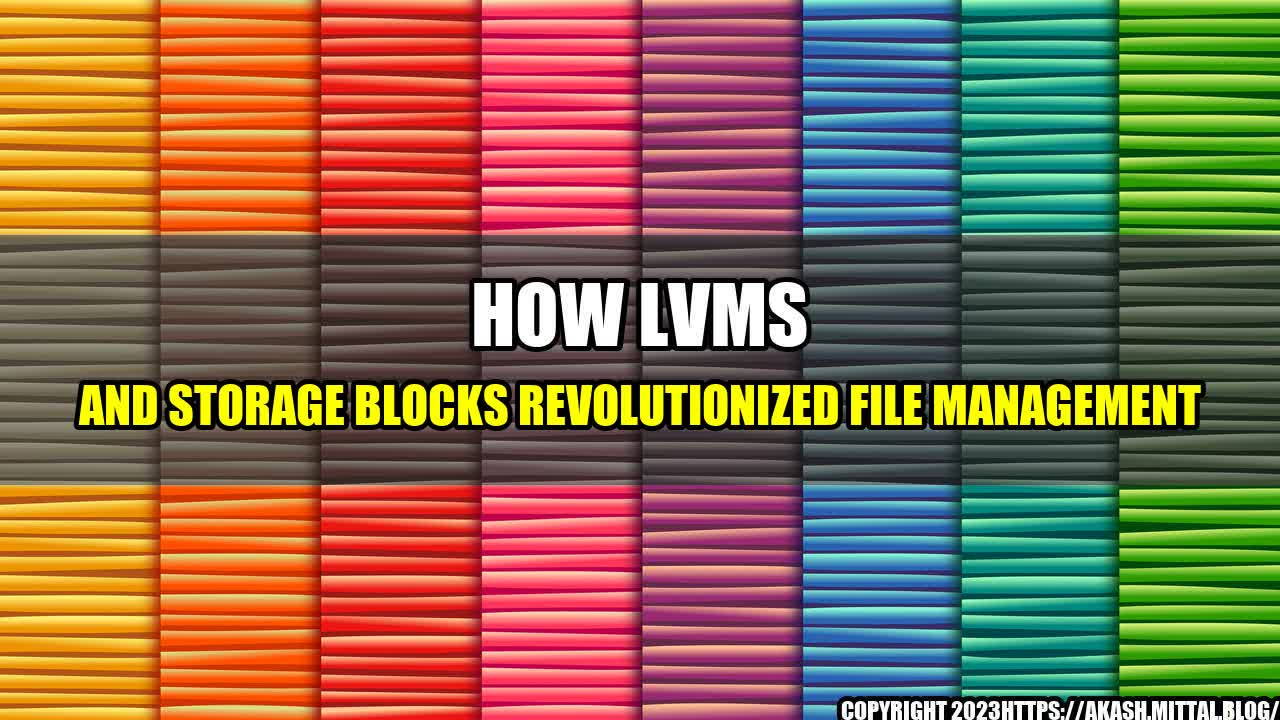
Imagine you are a data center administrator working in a large corporation. Your job is to manage and store large amounts of data on your company's servers. One day, you are notified that you need to create a new file system to store a large video file. But the problem is that you do not have enough space on your hard drive to create a new partition without erasing some essential data. What would you do in this situation?
This is a classic example of a storage space management problem that people have been facing for years. The conventional method of managing disks was through the use of partitions. Partitioning hard drives enabled people to create separate spaces on the same disk and allocate files to them. However, partitioning did not solve the problem of disk utilization. People often ended up with unallocated space on their disks that could not be used for storing files.
Enter Logical Volume Management (LVM). LVM is a software technology that was developed to manage disk space in a flexible and efficient manner. With LVM, a hard disk can be divided into multiple Logical Volumes (LVs) that can be resized, combined, or even migrated to other physical disks without disrupting the storage operations. LVMs have made it possible to manage disk storage seamlessly, without the need to create partitions and manage data on them.
Storage Blocks are another innovation that has simplified file management. A Storage Block refers to a group of data that is stored and accessed as one unit. They can be thought of as a collection of data blocks that make up a file or a data structure. Storage Blocks have revolutionized how computers read and write files. They have made it possible to manage and store data efficiently and quickly. Modern file systems such as XFS, Btrfs, and ZFS all use Storage Blocks.
Now let us consider some quantifiable examples of how LVMs and Storage Blocks have transformed file management:
From the above examples, it is evident that LVMs and Storage Blocks have revolutionized file management by enabling more efficient utilization of disk space, improving data integrity, and making disaster recovery much easier. If you are an administrator, then these technologies can help you reduce management overhead and efficiently store data.
At this point, I would like to share a personal anecdote to illustrate how LVMs and Storage Blocks have made my job easier. A few years ago, I was setting up a server for a small business that wanted to store customer data and process orders. The server was a modest machine with a few hard drives that I would configure in a RAID 5 array. The business quickly realized that the amount of disk space required to store their data would grow quickly, and they were not willing to make a substantial upfront investment in hardware. Instead, I suggested implementing LVMs and Storage Blocks, which would enable them to add storage on the fly. This decision saved the business a lot of money and made my job much easier.
In conclusion, LVMs and Storage Blocks have made it possible for administrators to efficiently manage disk space and store data reliably. With these technologies, one can allocate disk space dynamically, detect and correct data errors, and recover lost data quickly. These benefits explain why LVMs and Storage Blocks are now a standard part of modern file systems and disk management tools.
Hashtags: #LVMs #StorageBlocks #FileManagement #DataStorage #DisasterRecovery #EfficientDiskSpace
Article Category: Technology
SEO Keywords: LVMs, Storage Blocks, Logical Volume Management, Disk Space, Data Integrity, Disaster Recovery, Efficient File Management
Curated by Team Akash.Mittal.Blog
Share on Twitter Share on LinkedIn